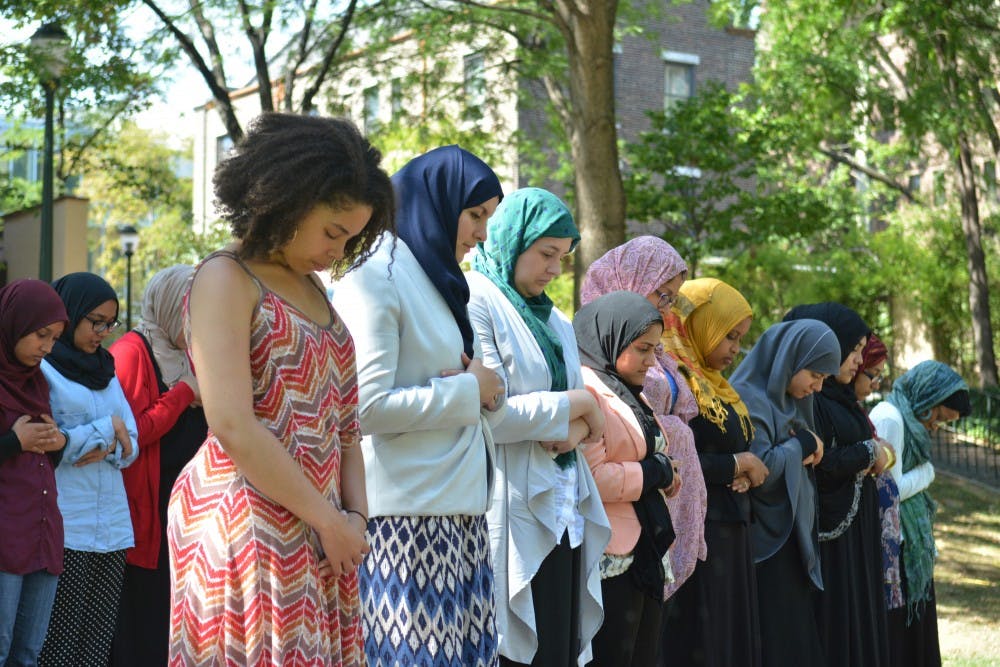
“Is it possible to reconcile the theory of evolution and faith in the Quran?” That was the question Yasir Qadhi, dean of academic affairs at the AlMaghrib Institute, posed to a Huntsman Hall audience on Friday night.
The answer that he gave: "By and large, yes."
Qadhi spoke to Muslim and non-Muslim students from Penn, Drexel, Temple and neighboring states on Friday to kick off the Muslim Student Association’s two-week Islamic Discovery Series, an annual Penn event celebrating Islam.
From the perspective of a Muslim cleric with an academic background in the sciences, Qadhi — who studied chemical engineering at the University of Houston — said one reason why the theory of evolution is problematic for Muslims is that mainstream Muslim societies treat the Quran as the unaltered word of God.
“By and large, other faith traditions have moved away from the literal text of their holy book," Qadhi said. "Muslims have not. Muslims are indeed literalistic because they are not willing to open the door to symbolism and allegory. We take the story of Adam and Eve at face value.”
Stating that the literal Quran has no problem with most of the theory of evolution, Qadhi criticized the way many Muslims around the world dismiss and remain ignorant of the theory.
“The theory of evolution is good science. The only people who deny evolution completely are religious fundamentalists. This is includes small groups from Christianity, small groups from Judaism and lo and behold, large parts of the Muslim community," he said. "We must acknowledge this to be a problem and begin a dialogue to see what solutions we can reach.”
In the latter part of his talk, Qadhi explained that even though evolution is "good science," there is still a "red line" distinguishing evolution from what is written in the Quran.
“Most of the postulates of evolution are not at all problematic to the believer. But to be faithful to the book, we have to make one exception, and that is for Homo sapiens," Qadhi said. "The creation of Homo sapiens is an act of God, a supernatural act, and by definition cannot be proved.”
The Daily Pennsylvanian is an independent, student-run newspaper. Please consider making a donation to support the coverage that shapes the University. Your generosity ensures a future of strong journalism at Penn.
DonatePlease note All comments are eligible for publication in The Daily Pennsylvanian.








